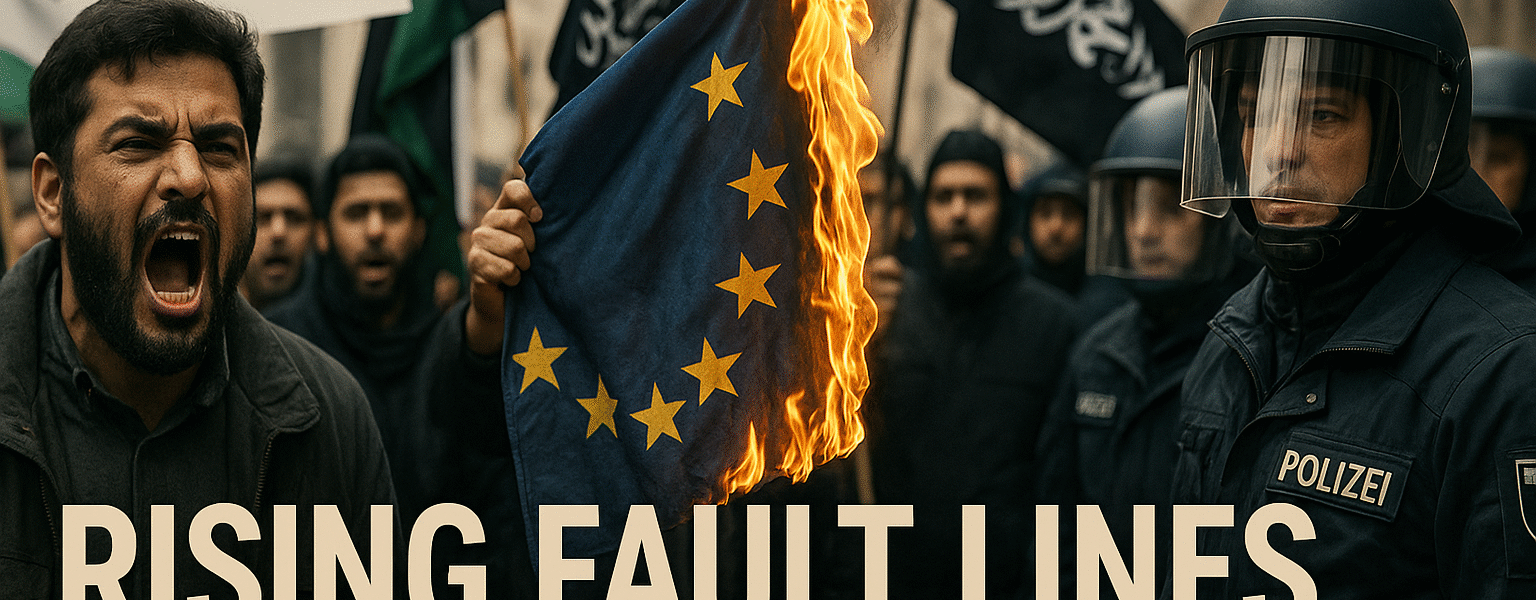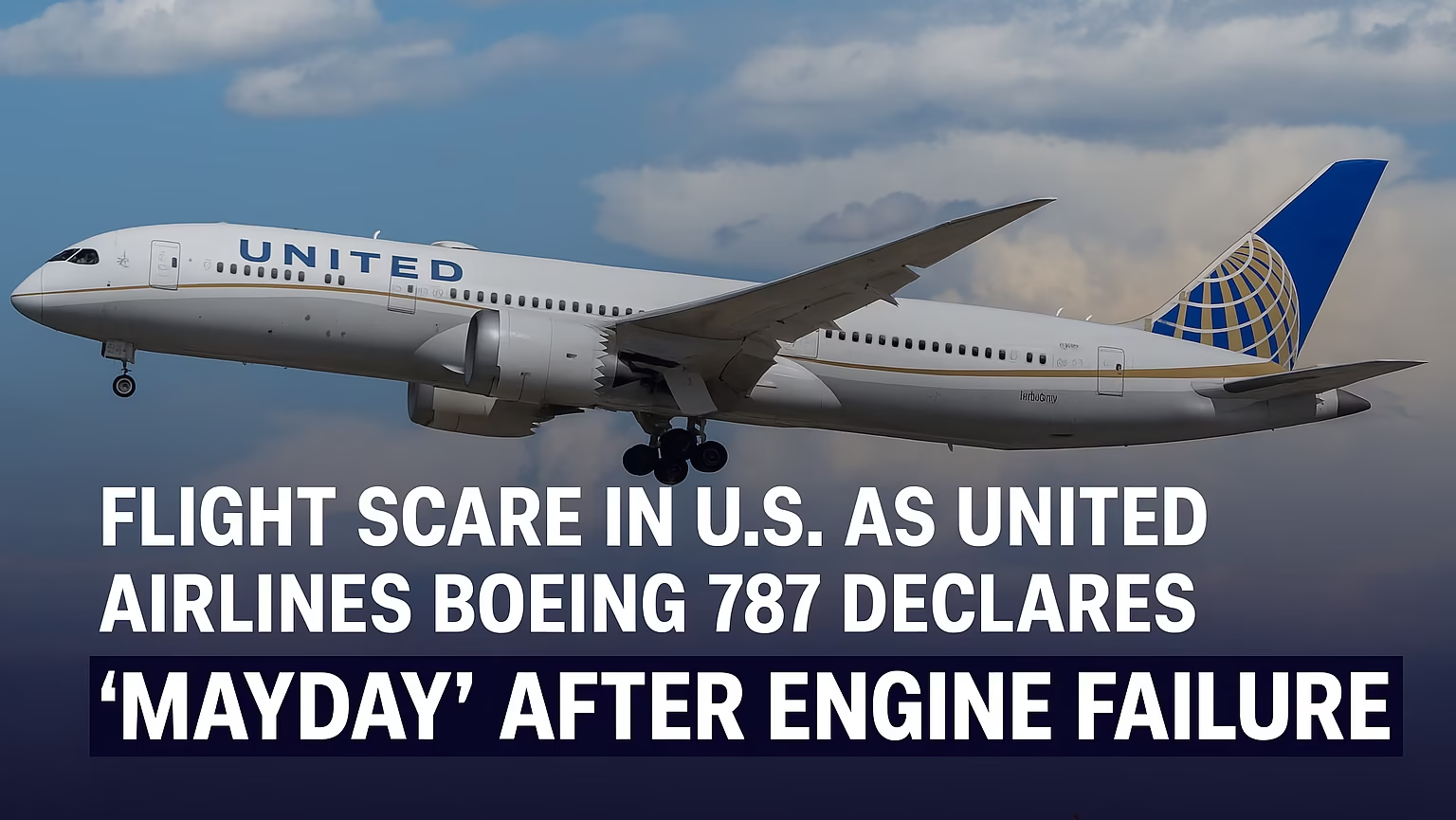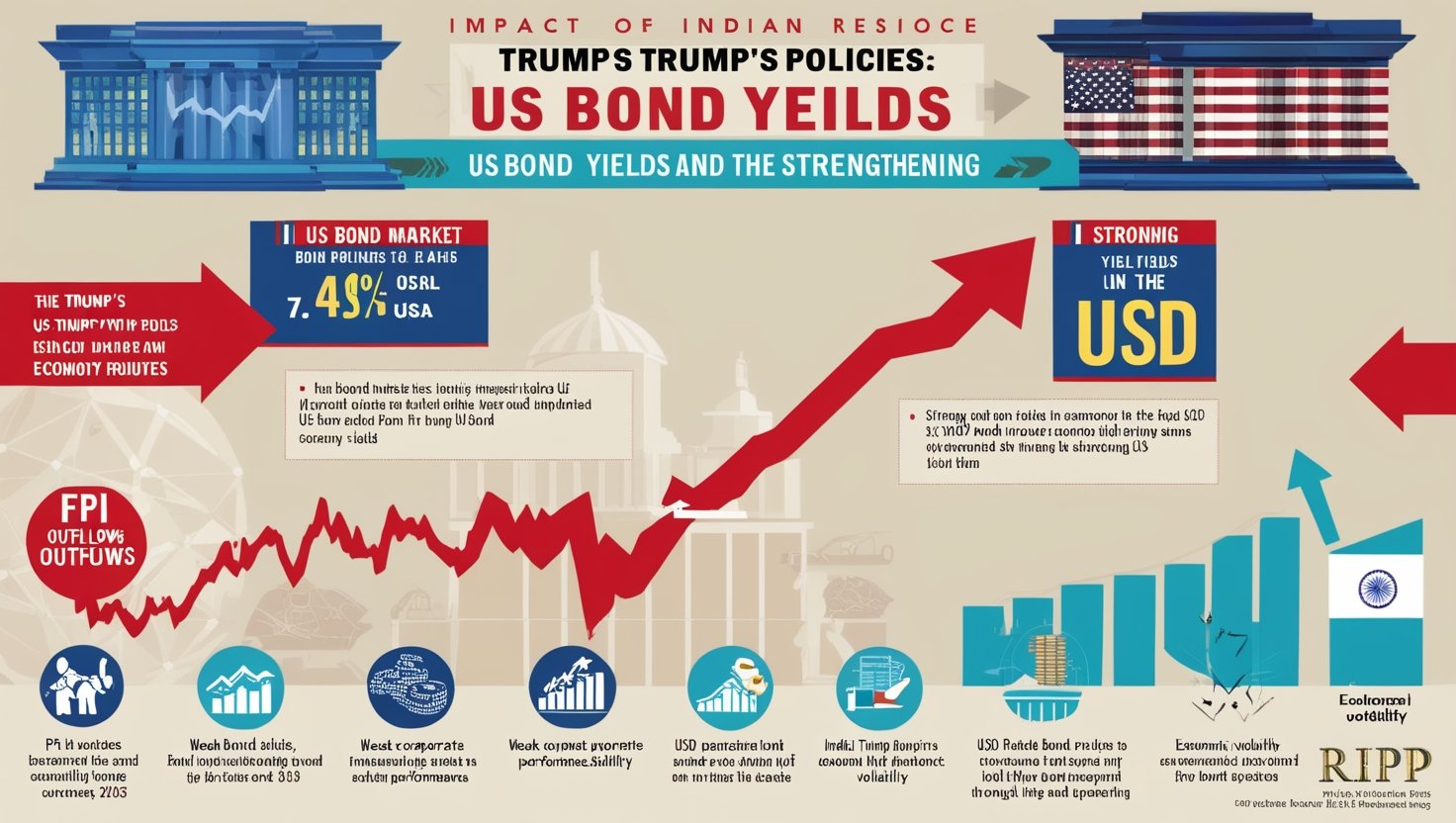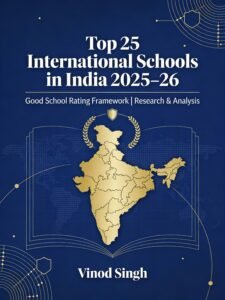Rising Geopolitical Tensions: Islamic Radicalism, Refugee Crisis, and the Shifting Global Order
Introduction

Across Europe, Australia, and parts of Asia, concerns are mounting over the growing visibility of radical Islamist movements. While most Muslim immigrants live peacefully (contested assertion) and contribute marginally to their host societies, recent surveys and crime reports have triggered debates about the social and political costs of mass migration. From London to Berlin, Paris to Sydney, sporadic incidents of violence, radical sermons, and communal polarisation are reshaping domestic politics and international relations.
The issue is not confined to the West. In India, analysts warn of digital campaigns such as “Breaking India” toolkits and provocative movements like the “I Love Mohammad” campaign, which have allegedly stirred violence and mistrust among communities. Taken together, these developments suggest that religious radicalism, political opportunism, and social backlash are colliding on a global stage.
Europe: From Humanitarianism to Hard Realities
Refugee Crisis and Integration Challenges
The refugee influx of the 2010s, primarily from conflict zones in Syria, Iraq, Afghanistan, and parts of Africa, was initially met with compassion. Countries like Germany opened their doors, with Chancellor Angela Merkel famously declaring, “Wir schaffen das” (We can manage this). Yet, years later, integration challenges have surfaced.
According to multiple European crime reports and think-tank studies (e.g., Pew Research Centre, European Union Agency for Fundamental Rights), refugees and asylum-seekers are disproportionately represented in certain categories of violent crime. While correlation does not equal causation—and economic hardship, ghettoisation, and lack of opportunities play a role—these statistics have fed nationalist and far-right narratives across Europe.
Flashpoints in Britain, France, and Germany
- Britain has seen repeated tensions around radical preachers, Islamist-linked protests, and violent incidents, reviving debates over multiculturalism.
- France, with its strong secularist (laïcité) traditions, has faced terror attacks and heated arguments over religious symbols, especially the hijab.
- Germany struggles with parallel societies, where radical networks operate in migrant neighbourhoods.
The rise of support for Palestine, amplified after each Middle East conflict, further complicates matters. Large-scale demonstrations, while somewhat less violent or peaceful, sometimes spill into clashes, with governments caught between free expression and public safety.
Beyond Europe: The Australian Experience
Australia, once geographically shielded, has also seen Islamist-inspired violence, from the 2014 Sydney café siege to smaller-scale lone-wolf attacks. The government has tightened its immigration vetting process and invested heavily in counter-terrorism surveillance. Yet, concerns remain about radicalisation in prisons, online spaces, and certain refugee communities.
India: The “Breaking India” Toolkit Concerns
India’s challenges differ in scale but echo global trends. Campaigns like “I Love Mohammad” have reportedly sparked unrest in multiple regions. Security experts argue that such movements, while couched in religious devotion, are often weaponised for political agitation, fueling clashes with majority communities.
Moreover, think tanks such as the Observer Research Foundation (ORF) have warned of “toolkit” strategies—well-coordinated digital disinformation and protest campaigns—aimed at destabilising India’s internal harmony. In the world’s largest democracy, where communal relations are historically sensitive, such campaigns can ignite disproportionate violence.
A New Geopolitical Divide: Islamists, Leftists, and Nationalists
Analysts are increasingly framing this turbulence as part of a broader geopolitical struggle:
- Islamist groups seek to advance their religious-political ideologies, often transcending borders.
- Leftist and liberal blocs defend multiculturalism, human rights, and refugee protections, sometimes underestimating radicalism’s threat.
- Nationalist and conservative movements across Europe, India, and Australia argue for cultural preservation, stricter immigration, and tougher counter-terrorism.
This polarisation is fueling political instability. Governments are forced to balance civil liberties with national security, humanitarian ideals with domestic safety, and religious rights with secular values.
The Global Outlook: Toward a Religious-Political Clash?
If unchecked, these tensions could escalate into a new wave of global violence. Experts caution that:
- Continued radicalisation may provoke violent backlash, leading to cycles of extremism on both sides.
- Innocent lives—both Muslim and non-Muslim—will inevitably be lost in communal clashes.
- Fragile democracies may face rising authoritarian tendencies, as security becomes the primary political currency.
The risk is not just terrorism but a broader clash of identities that destabilises societies from within.
Conclusion
The world stands at a dangerous inflection point. Europe grapples with the unintended consequences of its humanitarian refugee policies. Australia confronts radicalisation despite strict border controls. India battles toolkit-driven unrest and communal flashpoints. And across all regions, the struggle to balance cultural preservation with pluralism intensifies.
What is clear is that no single country can address this in isolation. Multilateral cooperation on counter-terrorism, stricter digital surveillance of radical content, and long-term investments in integration are critical. Otherwise, the coming decades may indeed witness a geopolitical struggle defined not by economics or ideology—but by religion and identity.
Recent Posts
Navratri Navami 2025 Kanya Pujan: Auspicious Date and Muhurat — September 30 or October 1?
How to Download Aadhaar card on WhatsApp: Step-by-Step Guide for 2025
#IslamicRadicalism #RefugeeCrisis #EuropeanSecurity #RadicalIslam #MigrationDebate #BreakingIndia #ILoveMuhammadRow #PalestineProtests #CulturalClash #GlobalExtremism
Islamic radicalism in Europe
Refugee crime statistics 2025, Radical Islamist influence in Europe, Breaking India toolkit controversy, I Love Muhammad campaign violence India, Refugee crisis and security Europe, Jihadist networks in Germany France Britain, Islamist radicalization in Australia, Palestine protests in Europe 2025, Global rise of religious extremism
Discover more from
Subscribe to get the latest posts sent to your email.











2 COMMENTS